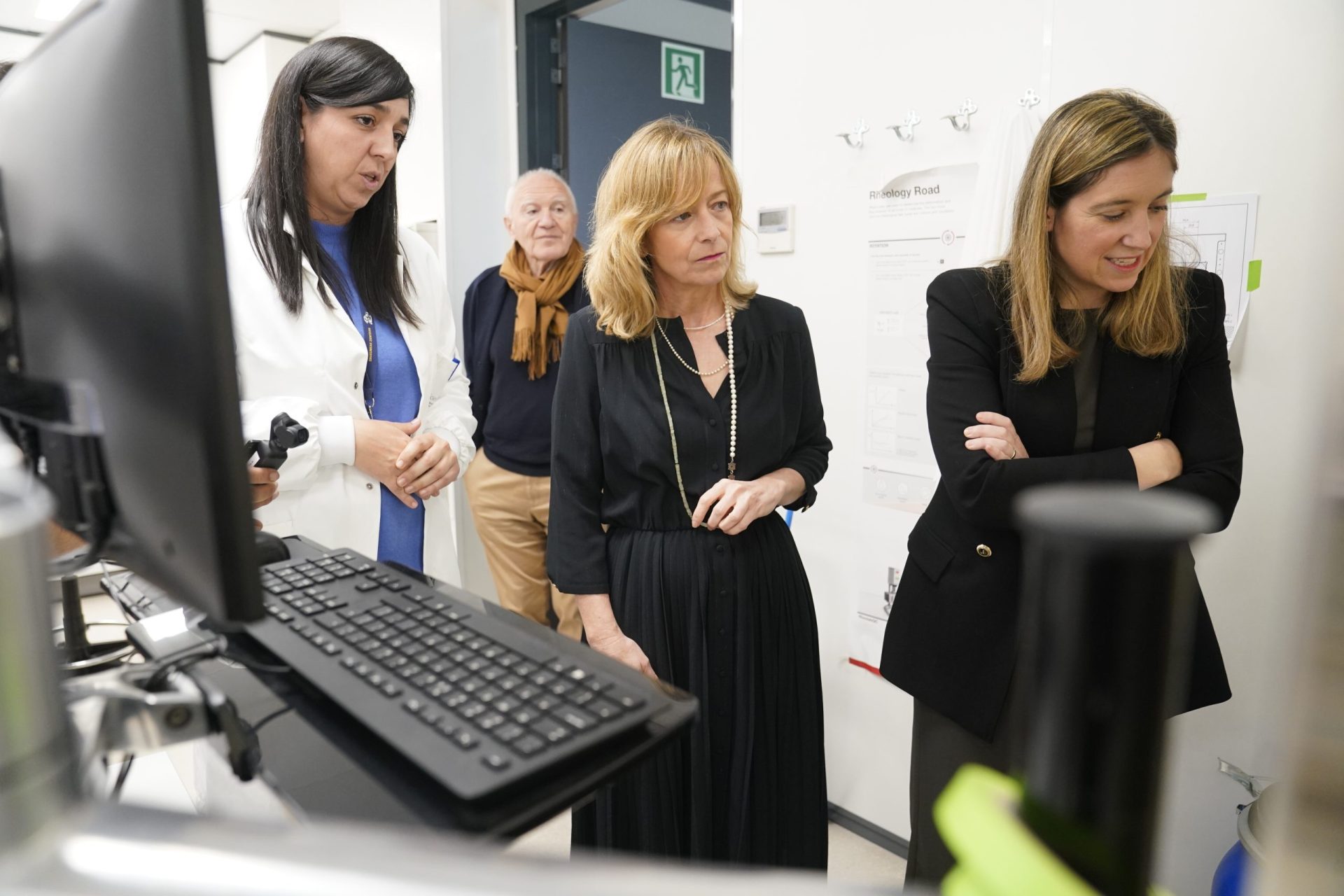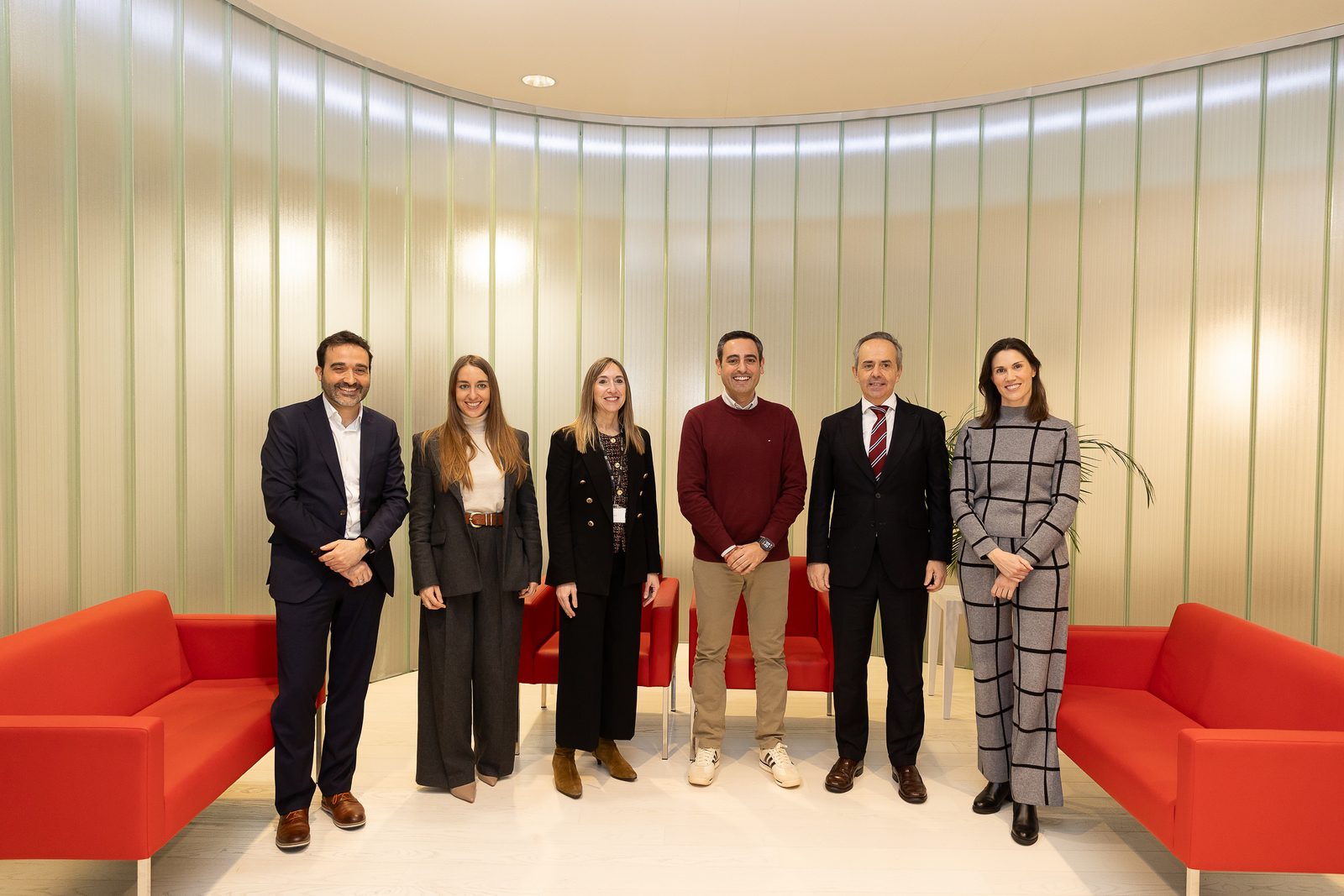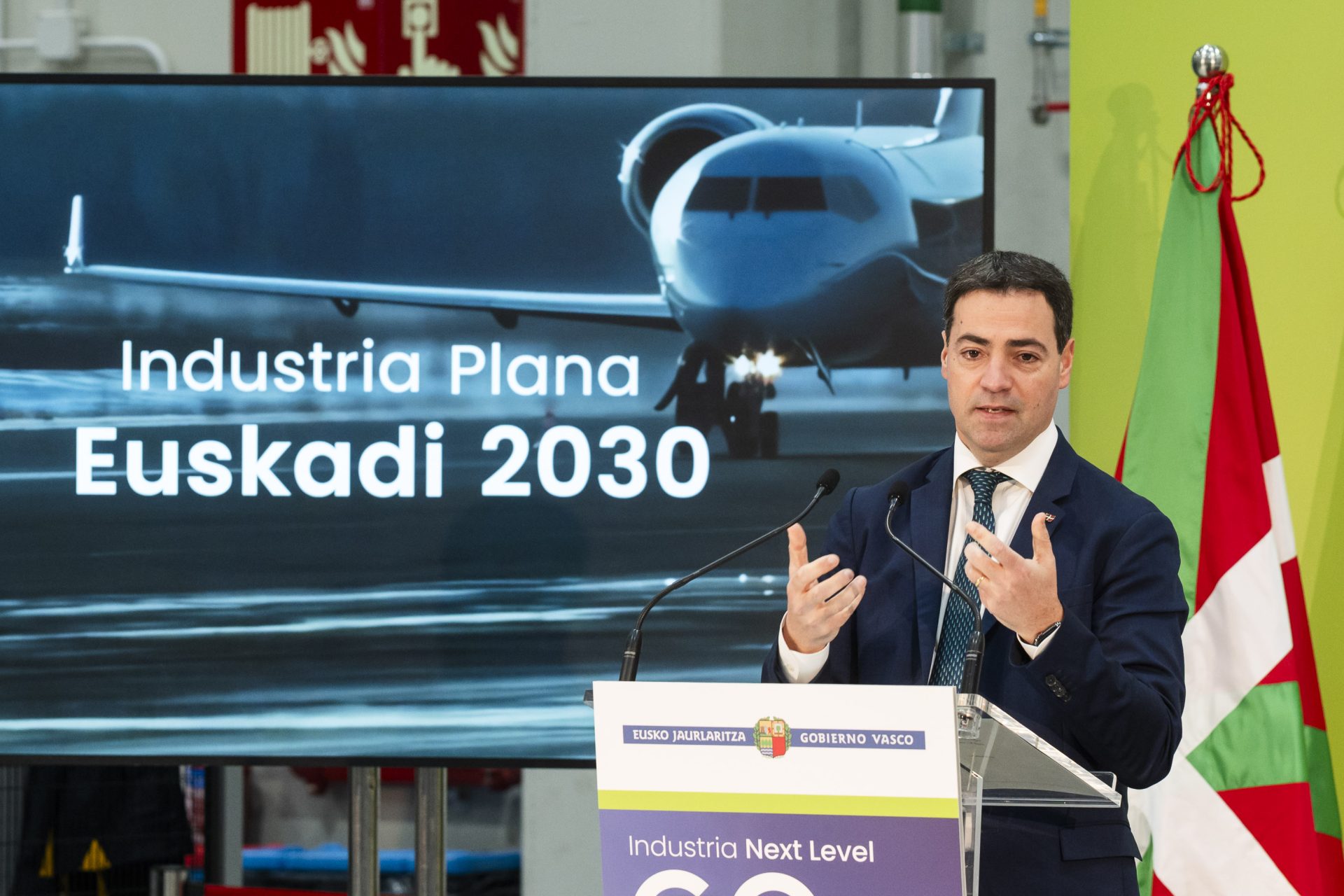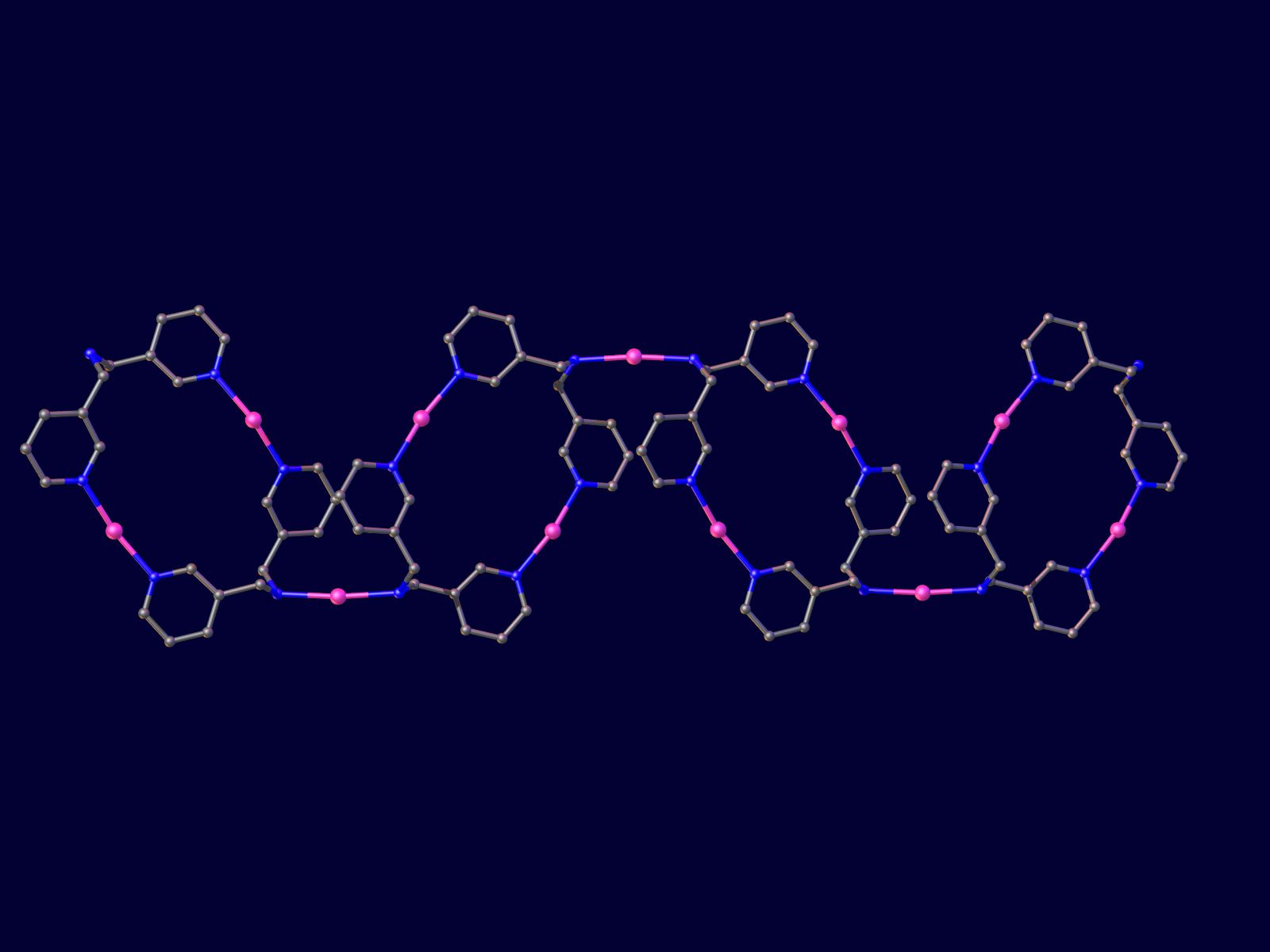CIC biomaGUNE, the importance of biomaterials research and development

Eider Mendoza, Deputy General of Gipuzkoa, and Ane Insausti, Deputy for Economic Promotion and Strategic Projects, visited the centre’s facilities.
The representatives of the province of Gipuzkoa listened attentively to the explanations about the most innovative projects and the most advanced infrastructures of CIC biomaGUNE.
Eider Mendoza, Deputy General of Gipuzkoa, and Ane Insausti, Deputy for Economic Promotion and Strategic Projects, visited the facilities of the Biomaterials Research Centre – CIC biomaGUNE, with the aim of learning more about the cutting-edge research being carried out at the centre in San Sebastian, a member of the Basque Research and Technology Alliance (BRTA).
Aitziber López Cortajarena, Ikerbasque professor and scientific director of the centre, welcomed the regional representatives and accompanied them throughout the scheduled visit to show them the work being carried out in the field of the design, preparation and characterisation of biomaterials to study biological processes and develop diagnostic and therapeutic methods. Professor Cortajarena stressed the importance of “making known the infrastructures and the work carried out at the Basque Science and Technology Network centres, as well as the importance of strengthening fundamental research, thanks to which so much progress has been made in the field of biotechnology, biomaterials, diagnostics and advanced therapies”.
Mendoza and Insausti were able to see first-hand the work of several internationally recognised research groups at the centre, which has a unique research infrastructure equipped with the most advanced nanomedicine, biomaterials and molecular imaging facilities.
First of all, Ikerbasque professor Fernando López Gallego showed the deputies the Heterogeneous Biocatalysis laboratory, where they work, among other things, on “processes for the degradation of micro and nanoplastics in wastewater with enzymes or biological catalysts”, and technological solutions are sought for the plastics industry “to achieve more circular and sustainable models in which plastics are made from bio-based starting materials, instead of petroleum derivatives, and can be recycled efficiently”.
Mendoza and Insausti then visited the bioprinter that two groups at the centre are working with. Ikerbasque researcher Dorleta Jimenez de Aberasturi explained that the Biofunctional Hybrid Materials group uses this printer “to build stimulated arterial models that imitate the pulsations of a real artery, in order to make progress in research into different cardiovascular and cardiopulmonary diseases”. Dr. Clara García Astrain explained that the Bionanoplasmonic group produces tumour models in which the efficacy of anti-tumour drugs can be tested and that it is also working on the development of tumours with tumour cells from patients.
Ikerbasque professor Jesús Ruiz Cabello, from the Molecular and Functional Biomarkers group, showed the centre’s Molecular and Functional Imaging Unit , whose expansion has been supported by the Provincial Council in the last two calls for applications for grants to the Basque Science and Technology Network: “It is one of the largest preclinical imaging research infrastructures in Europe, where molecules and biomaterials can be monitored in living organisms in a non-invasive way, which is key to the development of new therapies and diagnoses”.
After the visit, the deputy general of Gipuzkoa pointed out that “the commitment made for decades by Gipuzkoa to the development of advanced infrastructures and talent has allowed us to become a benchmark in R&D, with a level of investment well above the national and European average, an extensive network of cutting-edge centres, and almost 14,000 people dedicated to this activity. CIC biomaGUNE represents this commitment and makes a contribution of enormous value, generating advanced knowledge that translates into advances to improve our health, our quality of life, or to move towards a more sustainable economy”, he explained. Mendoza assured that “from the Provincial Council we will continue to support this effort, both through calls for grants to carry out projects or the acquisition of advanced equipment, and by leading collaborative projects such as GANTT (advanced therapies)”.




